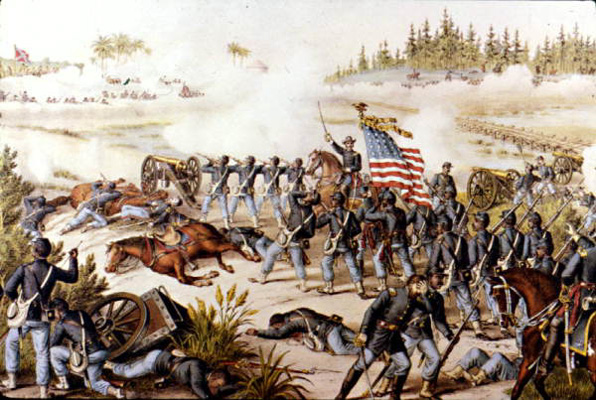
Educating American youngsters about the US Civil War is coming under scrutiny as tensions in the south continue to unravel.
In the southern state of Texas school children are being given new history textbooks to learn from, these do not discuss the history of racial segregation or extreme groups such as the Ku Klux Klan. The reasons for Civil War come down to sectionalism, the rights of individual states and slavery according to the correct version for education purposes. But some are disputing the fact that slavery has been discarded as not the main reason for the Civil War.
Local Texan Republicans claim that slavery was a side issue for the Civil War and that it was more about preserving the rights of individual states.
But after nine black people were shot in South Carolina earlier this year, the controversial topics of the Civil War and use of the Confederate flag are coming to the fore of local political and social debate.
Many are suggesting that how the Civil War is taught in schools should be re-examined, since so many people perceive the war in so many different ways, dependent on their background and understanding of the conflict.
In 2010, the Texas state board of education went so far as amending the standards of how slavery is taught in schools since it said the standards had a liberal leaning. In an example of what students are required to learn, they are required to read a speech by the then president of the Confederate States, Jefferson Davis, which does not mention slavery, but are not required to read a speech by his vice president, Alexander Stephens, which states that preserving slavery was central to the new government’s agenda.
Many believe that America’s history of slavery and civil rights should be at the forefront of education since they have shaped the country to be what it is today. Even past Republican education secretary, Rod Paige, has said that Americans may not like what happened in history, but it is historical fact, the Santa Fe New Mexican reports.
Most historians and scholars agree that the issue of states’ rights goes hand in hand with slavery, because the southern states wanted to preserve the right to keep slaves. The leaders of the 11 southern states wanted to be able to own slaves so that they could work the plantations in the south.
The Texas education board has not commented on its education standards or amendments made.